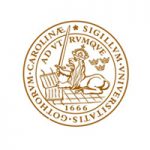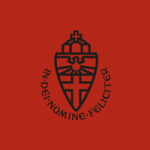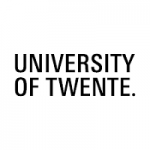项目介绍
Lund University was founded in 1666 and is repeatedly ranked among the world’s top universities. The University has around 47 000 students and more than 8 800 staff based in Lund, Helsingborg and Malmö. We are united in our efforts to understand, explain and improve our world and the human condition.
Lund University welcomes applicants with diverse backgrounds and experiences. We regard gender equality and diversity as a strength and an asset.
The Theoretical Particle Physics group in Lund is mainly active in particle physics phenomenology, with work that relates theory to quantitative predictions for collider experiments. The group is subdivided into smaller, more informal, research groups centered around different research areas, reflecting the individual researchers’ projects. The employed doctoral student will participate in the group concerned with QCD and event generators, which currently consists of seven seniors, Christian Bierlich, Rikkert Frederix, Gösta Gustafson (emeritus), Leif Lönnblad, Malin Sjödahl, Torbjörn Sjöstrand (emeritus) and Korinna Zapp.
The group is co-localized, and has good relations, with experimental groups active in experiments at CERN and elsewhere, for example the ALICE experiment.
Work duties
The research project is centered around phenomenological investigations of collective behavior in small collision systems, such as proton-proton collisions, proton-ion collisions or light ion collisions, at high energies, such as they are carried out at the LHC. The projects will entail development and use of phenomenological models – particularly Monte Carlo event generators – for collective behavior, based on microscopic principles.
Potential research projects include investigation of jet quenching or charm production.
The main duties of doctoral students are to devote themselves to their research studies, which includes participating in research projects and third cycle courses. The work duties can also include teaching and other departmental duties (no more than 20%).
Entry requirements
Admission requirements
A person meets the general admission requirements for third-cycle courses and study programmes if he or she:
- has been awarded a second-cycle qualification, or
- has satisfied the requirements for courses comprising at least 240 credits of which at least 60 credits were awarded in the second cycle, or
- has acquired substantially equivalent knowledge in some other way in Sweden or abroad.
Specific entry requirement:
To be admitted to the third-cycle programme in theoretical physics the student must have a first-cycle qualification in physics, theoretical physics or engineering physics and at least 60 second-cycle credits in physics, theoretical physics or associated subjects, but no more than 15 credits in the latter.
The specific entry requirement may also have been obtained through other equivalent education, which is assessed in each individual case.
Finally, the student must be judged to have the potential to complete the programme.
Additional requirements:
- Very good oral and written proficiency in English.
Other assessment criteria
- Courses and degree projects within the area of theoretical particle physics or high energy physics in general is an advantage.
- Experience with scientific programming is also a merit.
Basis of assessment
Selection to postgraduate studies is based on the expected ability to perform well in the studies. The evaluation of the ability to perform well is based primarily on the results of studies at the basic and advanced levels, in particular:
- Knowledge and skills relevant to the thesis project and the subject of the study.
- An assessment of ability to work independently and to formulate and tackle research problems.
- Written and oral communication skills
- Other experience relevant to postgraduate studies, such as professional experience.
Consideration will also be given to good collaborative skills, drive and independence, and how the applicant, through his or her experience and skills, is deemed to have the abilities necessary for successfully completing the third cycle programme.
Terms of employment
Only those admitted to third cycle studies may be appointed to a doctoral studentship. Third cycle studies consist of full-time studies for 4 years. A doctoral studentship is a fixed-term employment of a maximum of 5 years (including 20% departmental duties). Doctoral studentships are regulated in the Higher Education Ordinance (1993:100), chapter 5, 1-7 §§.
Instructions on how to apply
The application must be written in English. The application must contain a personal letter with a motivation for why you are interested in this employment, and how the research project matches your interests and educational background. The application must also include CV, degree diploma or a corresponding document, a copy of your thesis or, if the work is not concluded, a resume. The application must also contain the name of 3 references, and anything else you want to bring to the committee’s attention (copies of grades etc.)
The Faculty of Science conducts research and education within Biology, Astronomy, Physics, Geosciences, Chemistry, Mathematics and Environmental Science. The Faculty is organized into eight departments, gathered in the northern campus area. The Faculty has approximately 1500 students, 330 PhD students and 700 employees.
The Department of Physics is one of Lund University’s largest departments with approximately 400 employees. The department is shared between the Faculty of Science and Faculty of Engineering. At the department there are seven research divisions and a number of major research centra. The research at the department covers a wide range of modern physics.
www.fysik.lu.se/en/
联系方式
电话: +46 (0)46 222 0000相关项目推荐
KD博士实时收录全球顶尖院校的博士项目,总有一个项目等着你!






